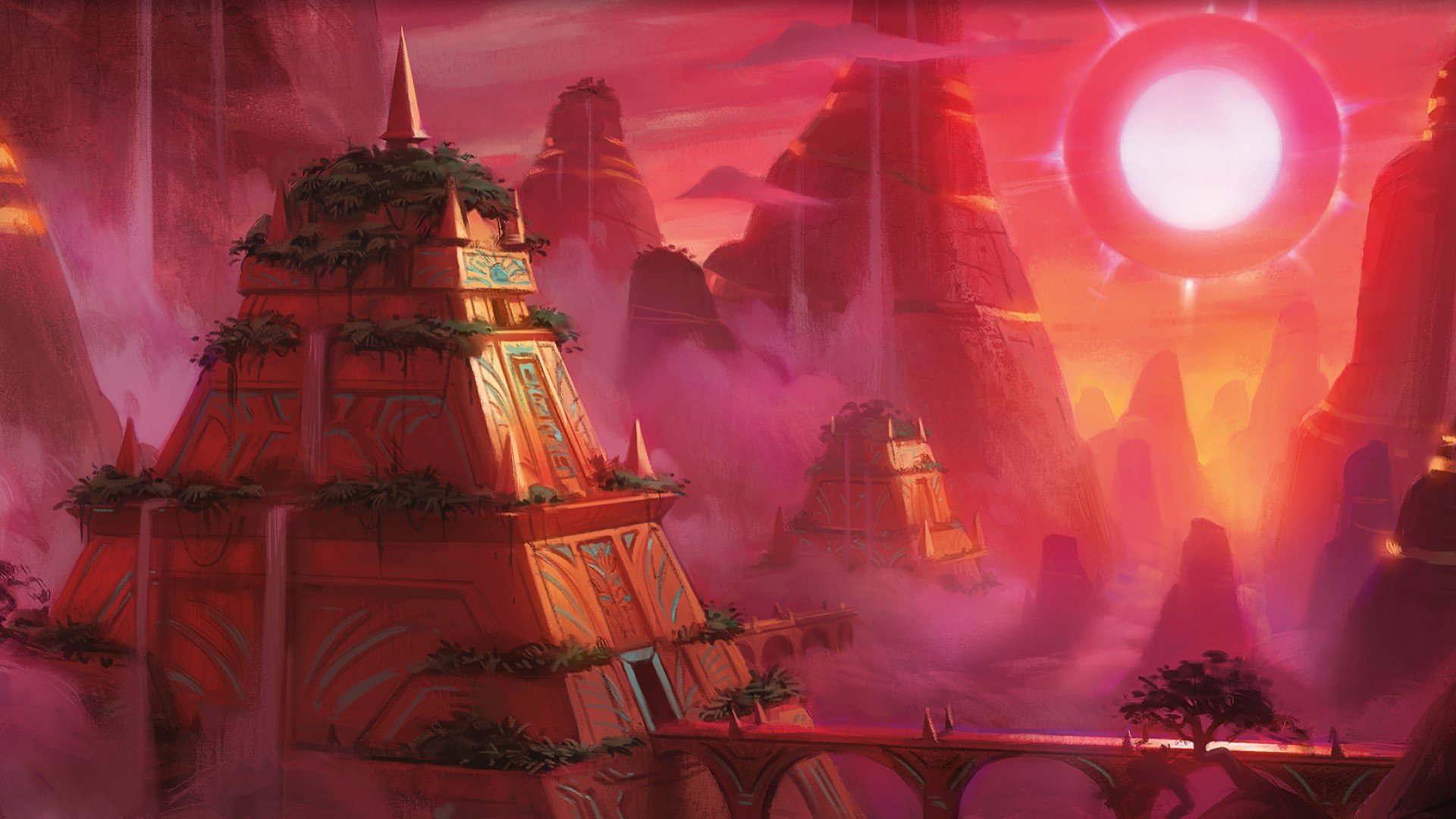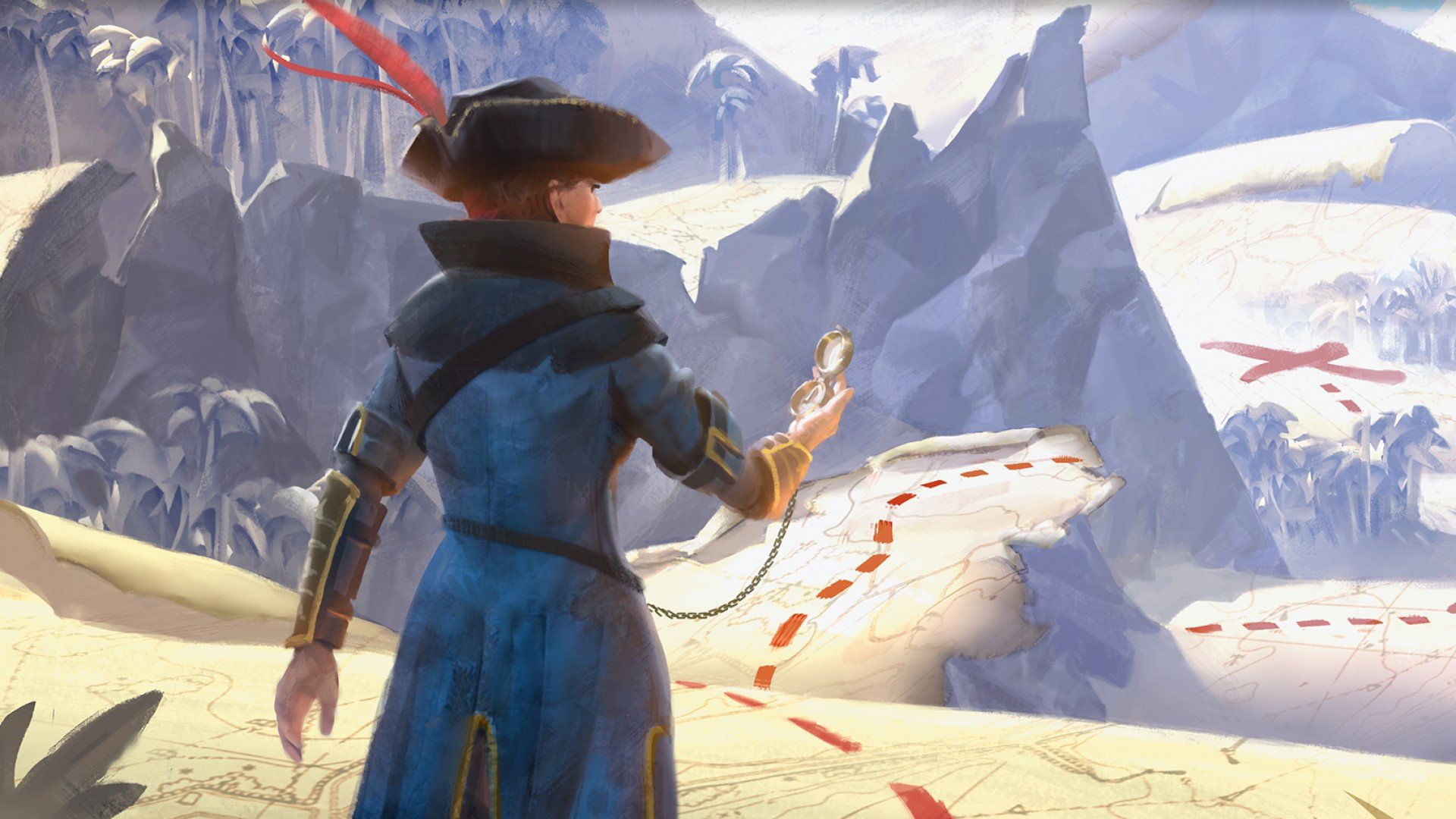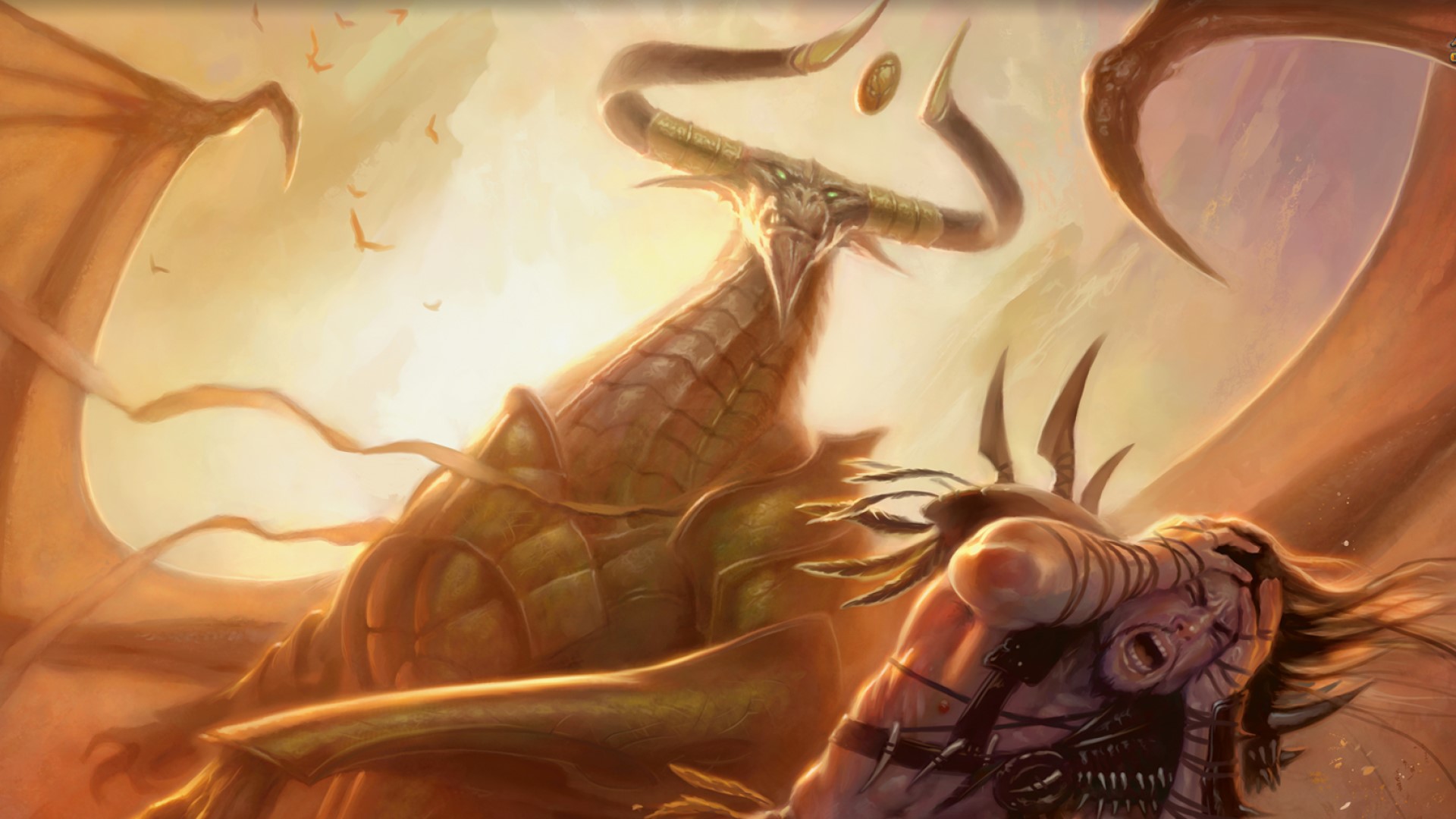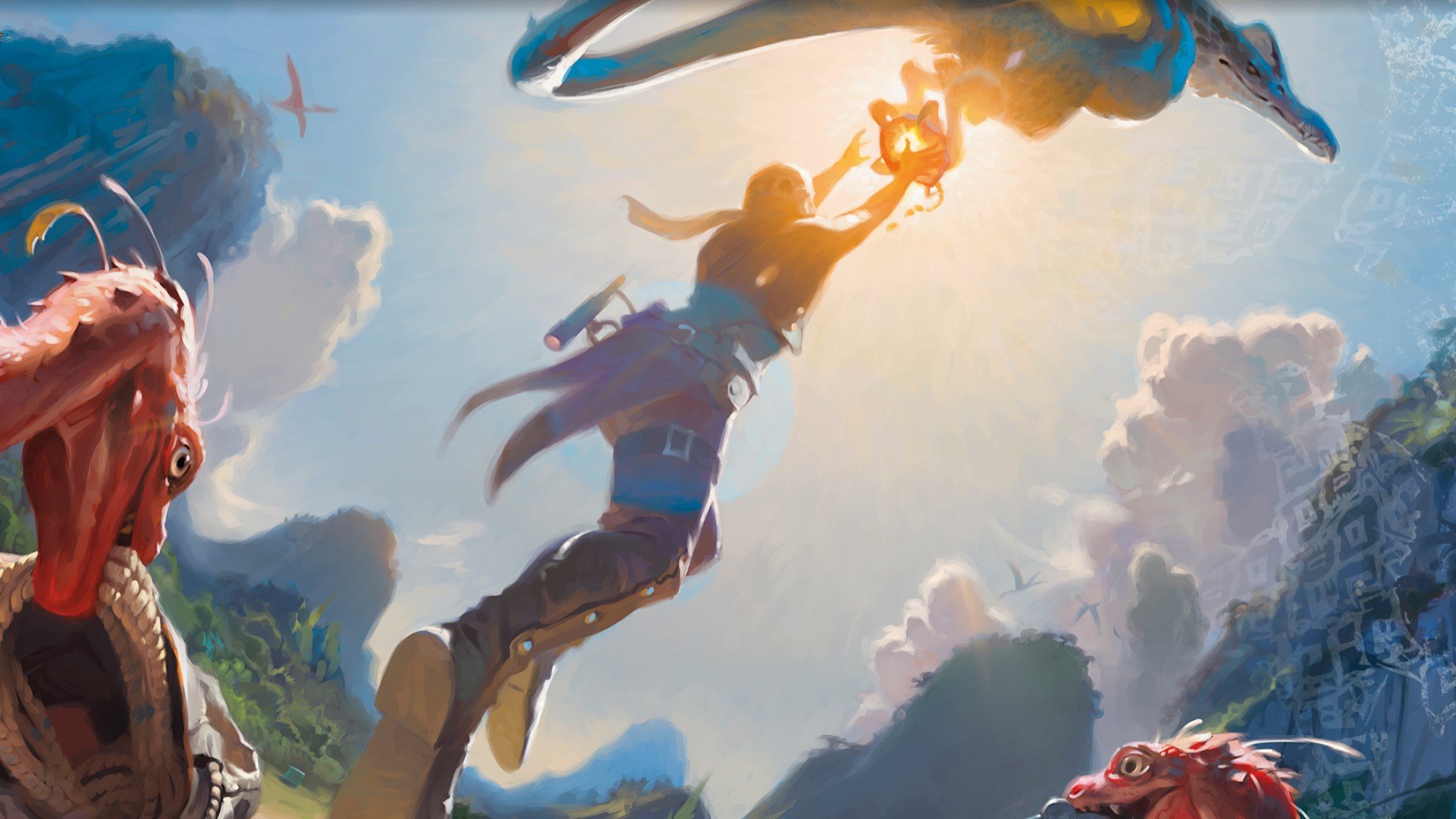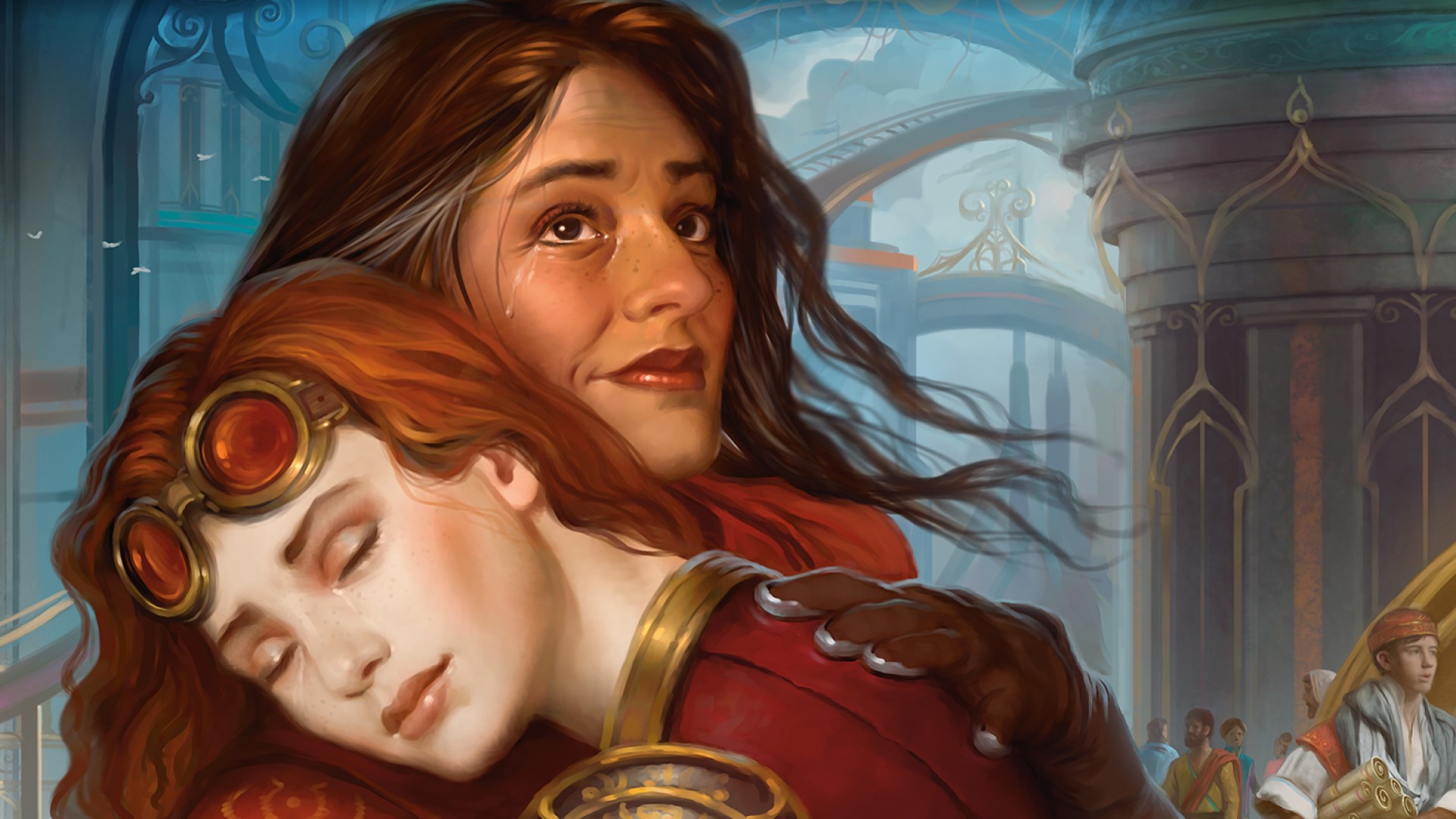It’s no secret that Wizards of the Coast is releasing a lot of Magic: The Gathering these days. The four premier MTG sets that get put out each year are now just the tip of a ginormous iceberg, made up of a frosty layer of Secret Lairs, Universes Beyond, Commander precons, and a load more supplemental products besides. The number of new Magic cards printed each year has gone from hundreds to thousands, and it’s fair to say it’s having an impact on the MTG community. Who, in this analogy, I’ve decided are penguins.
Now, don’t get me wrong, It’s not like Magic’s coming off the rails or anything. As Wizards has reported: in terms of sheer numbers the game’s looking healthier than ever. But the expansion and acceleration of MTG is clearly causing some strain. In Magic circles, you don’t have to look very hard to find complaints about the way things have changed.
Today’s Magic fans grumble about set fatigue, feeling bombarded by the number of releases, and the impact of the endless spoiler season, with its constant teasers for the next big thing on the horizon. But to me, it seems like the conversation about the growing deluge of MTG product is always focused on the consumer.
I’m keen to know more about another side of the issue: how the increase in MTG products affects LGSs, the people whose mission it is to make money from those products. Is it a desperate scramble to keep up with the constant releases? Is it an embarrassment of riches, with endless variety that can meet the needs of any customer? Or is it somewhere in between?
With the MTG 2023 release schedule freshly unveiled, and next year looking no less chockablock than this one, now seems like a pretty good time to find out. So I picked the brains of a bunch of Magic LGS owners.
Box of chocolates
Peter Kuhlman, owner of MinMax Games in Addison, Illinois, has been playing Magic for 20 years, and has seen how the game has grown over the decades. Times have changed from “you’ve got your booster box and that’s it,” to “20 different supplemental sets, and cards now coming in 17 different types of foiling.”
The trouble with the recent abundance of Magic products, Kuhlman explains, is that it’s tricky for store owners to know what to stock, simply because “people have different tastes; people are different types of collectors”.
“As gamers we want more,” Kuhlman observes. “And so we got more; and maybe we’ve got more than we want now.” With all the new products, “figuring out which one is going to sell better than another and not having too much of one, not having too little of another,” has become “a difficult equation”.
“Obviously, if we went back to just having one box, that would make my life easy,” he jokes. “I would order a lot of the one box; everyone would buy the one box; and we’d be done.” While he says it’s nice to have products like jumpstart and draft, to suit different tastes, he does think the interest from fans is “diluted” by the sheer variety on offer.
“Magic does a great job of being willing to scrap ideas and products,” Kuhlman says. He suggests that something has to go, and that ditching set boxes and the bundle would make things less confused. “You’d have your regular product for playing, and your high end collector product for sparkling out your deck, or for value,” he envisions.
Bryan from the LGS Champion’s Archive in Garden City, Kansas, says “there’s absolutely set fatigue. Players feel like they can’t keep up with everything that they are supposed to – and it is too much. Folks feel lost and like there’s a lot to complain about.”
However, he offers a very different solution. “Different sets are for different types of players,” he says. “The issue isn’t how often sets are coming out – it’s that WotC doesn’t do a good job of plainly communicating what the target demographic for each set is ahead of time.” He gives a recent example of Commander Legends Baldur’s Gate as a product where communication fell down, and the wrong expectations were set.
Bryan says while Wizards needs to get better at communicating with stores, there’s a responsibility from the LGS owner’s side too: “We need to step away from the mentality of ‘how do I make all my players want the new set?’ and think instead a little more humbly and long term – asking the question: ‘Which of my players or groups of players is this new product targeted at?’
“We’ve gotta be able to say ‘Hey, this set isn’t for you, skip it. There’s still a great bunch of products coming out for you this year.’”
Bryan sees a lot of potential for the future, if both Wizards and stores can tighten up their communication. Kuhlman points out, though, that “getting the right people to the right product is more of a challenge when there’s more product and more options.”
Cards with haste
Variety is one issue, speed of releases is another. And it seems when it comes to the rapidity of Magic’s release schedule, a big problem for the LGS is how quickly players move on.
“Interest seems to fall off a cliff a lot faster than it used to,” says Reddit user and LGS owner Casetuar. “New Capenna was strong initially, but fell off to the point we are at now, where it could be cheaper for me to buy collectors boxes off Tcgplayer rather than from my distributors.”
Peter Strandbech, who runs an LGS in Denmark, agrees. “LGS owners need to clear inventory, because you don’t want to get caught with dead inventory when the new hotness releases.”
“I can only assume it’s related to the timing of all the new products,” says Casetuar. “Why bother drafting a set for more than a month? If you don’t like the current set there will be a new one, usually, next month.”
Strandbech says there’s also more of a risk of tying up too much money in an unpopular product, because stores have to pre-order before they know anything about the set. “Take Innistrad Double Feature that came out this year,” he says. “It was the worst sealed product ever created, if you ask me, and it was sold at a premium. We have sold zero boxes, as in ever, even selling them at cost.”
What needs to change? “We have to be more cautious when ordering products,” Strandbech says. Magic is still selling very well when the set is well designed and people want the cards in it. Double Masters 2022 was a smash hit for stores.”
It seems like LGSs face a two-pronged problem, with both the speed and variety of Magic: The Gathering releases creating new challenges that have to be overcome with a range of different strategies – though Wizards of the Coast could also do its bit to make things easier.
However, store owners also have many of the same worries as regular players. For Peter Kuhlman, one of the main concerns is wallet fatigue. He sees rotating formats dying out as players move to Commander, customers only buying a few cards with each new set, and thinks the reason why is pretty simple: this game is expensive.
“How much discretionary money does the average Magic player actually have to be throwing at these games?” he wonders.
Source: Wargamer



